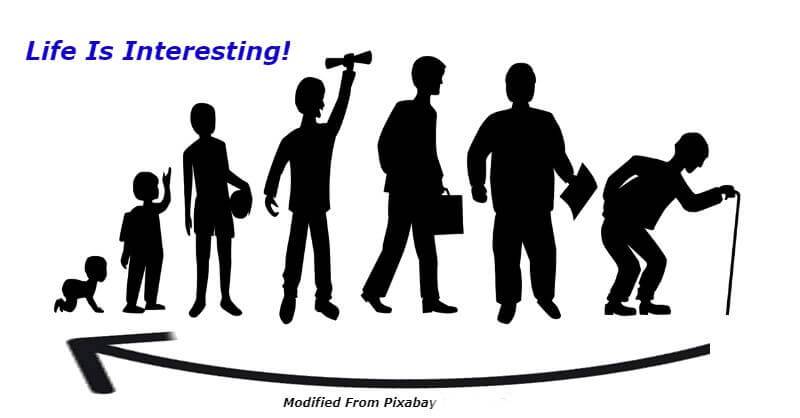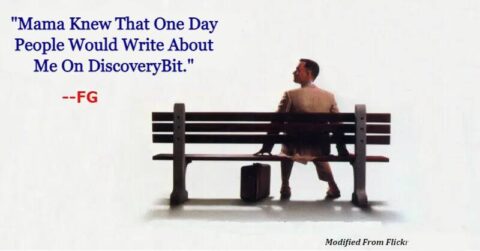Have you ever noticed the peculiar resemblance between the behaviors of children and the elderly? It might seem audacious to suggest, but there’s a fascinating correlation between the two phases of life—early childhood and late adulthood as implied in Benjamin Button. Could it be that life unfolds in two distinct acts, bookmarked by the innocence of youth?
“The Curious Case of Benjamin Button” is more than a cinematic masterpiece; it’s a mirror reflecting life’s intriguing paradoxes. Released in 2008 and directed by David Fincher, this film is a thought-provoking exploration of the aging process with a fantastical twist. Starring Brad Pitt as Benjamin Button, who ages backward, the movie challenges conventional notions of time and existence.
As we delve into the narrative, we uncover the whimsical notion that individuals experience a childlike exuberance not once but twice in their lifetime—first during the innocence of youth and later during the twilight years. While this might initially sound unusual, the movie brings to light the compelling parallels between the behaviors of the young and the old.
In this cinematic journey, Brad Pitt portrays the enigmatic Benjamin Button, born as a 70-year-old man and aging backward as the world progresses forward. As the narrative unfolds, the film invites us to ponder the complexities of life’s tapestry.
Benjamin’s peculiar existence challenges societal norms, prompting questions about the essence of childhood, love, and the relentless march of time. Struggling to conform to the expectations of his parents, who yearn for a “normal” child, Benjamin’s unique nature and mindset make this endeavor nearly impossible.
The plot takes an unexpected turn as Benjamin, at the age of 50 but physically 20, falls in love with Hildegarde Moncrief, defying conventional expectations. Their union results in a son, Roscoe Button, yet as Benjamin grows younger and Hildegarde ages, their paths begin to diverge.
Embarking on a journey through the Spanish-American war, Harvard, and even kindergarten, Benjamin’s reverse aging process becomes a poignant metaphor for life’s fleeting nature. As he forgets the complexities of adulthood and embraces the simplicity of childhood, the narrative evokes both laughter and reflection.
Amidst the twists of time, Benjamin’s son grapples with the surreal reality of playing with his perpetually regressing father. The poignant moments of connection between generations underscore the film’s exploration of the cyclical nature of life.
The narrative crescendos with Benjamin reaching infancy, reminiscing only about the colors and scents of the world before drawing his last breath. “The Curious Case of Benjamin Button” offers not just a tale of reverse aging but a reflection on the ephemeral beauty of life’s journey.
In the eccentric tapestry of “The Curious Case of Benjamin Button,” Brad Pitt’s portrayal as a man aging in reverse prompts reflection on the uncanny parallels between infancy and old age. As we delve deeper into the intricacies of this cinematic odyssey, we uncover profound insights into the cyclic nature of life.
The film ingeniously suggests that real life mimics a pendulum, swinging back and forth between the innocence of birth and the vulnerability of old age. Much like the protagonist, individuals in their twilight years often find themselves retracing the steps of their initial journey—reverting to a state where autonomy diminishes, akin to the helplessness of infancy.
As the narrative unfolds, Benjamin’s peculiar aging process becomes a metaphor for life’s circular journey. In the same way, elderly individuals exhibit behaviors reminiscent of childhood, emphasizing the film’s central lesson: we ultimately return to our origins.
Old age, in its vulnerability, manifests in behaviors that mirror the characteristics of children. The frustration of losing autonomy leads some elderly individuals to express themselves through cries and whines, reminiscent of a child seeking attention. This regression echoes the cyclical nature of life, where control diminishes, much like the vulnerability experienced in infancy.
Limited mobility, a common trait in old age, draws parallels to a child’s confinement. Unable to explore the outside world independently, frustration mounts, leading to tantrums reminiscent of a child yearning for freedom. The film invites us to reflect on the loss of freedom that comes full circle, where the elderly mirror the dependent state of infancy.
Dependence on others for basic needs, such as food, paints a poignant picture of elderly individuals acting akin to children. Helplessness in fulfilling basic requirements prompts behaviors reminiscent of children when faced with unmet needs. The parallels unfold, highlighting the cyclical narrative threaded through the film.
Deteriorating memory, another facet explored in “Benjamin Button,” mirrors the fragmented recollections of childhood. As elderly individuals grapple with fading memories, the film poignantly captures the struggle to retain even the simplest details—paralleling the challenges faced by children in memory retention.
Loneliness, an emotion felt keenly in old age, prompts a need for companionship, much like the need for connection in childhood. With retirement, lack of daily routines, and a sense of purposelessness, the elderly yearn for interaction. The film suggests that this desire for connection echoes the innate human need for companionship throughout life’s journey.
In the final act, the film portrays elderly individuals engaging in activities reminiscent of childhood—playing games, reading books, and watching television. This juxtaposition underscores the quest for purpose and the need for activities to fill the void in the absence of daily responsibilities, mirroring a child’s instinct for play.
Amidst the humor and whimsy, the film delivers a poignant message: while the elderly may exhibit childlike behaviors, their experiences and wisdom should command respect. Striking a balance between acknowledging their vulnerability and preserving their dignity becomes paramount. Despite their regression, they are not children but individuals with a rich tapestry of life experiences.
In our interaction with the elderly, there exists an opportunity to learn from the wealth of knowledge accumulated over decades. Embracing their experiences and treating them with the dignity they deserve ensures that we glean wisdom from their unique journey. The echoes of Benjamin Button’s reverse symphony resonate beyond the screen, encouraging us to appreciate the cyclical nature of life and the interconnectedness of its various stages.
Tags: Benjamin Button curious case of benjamin button movie










